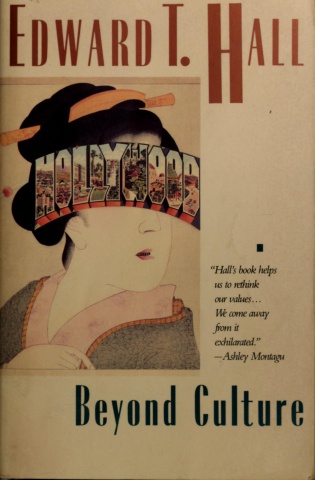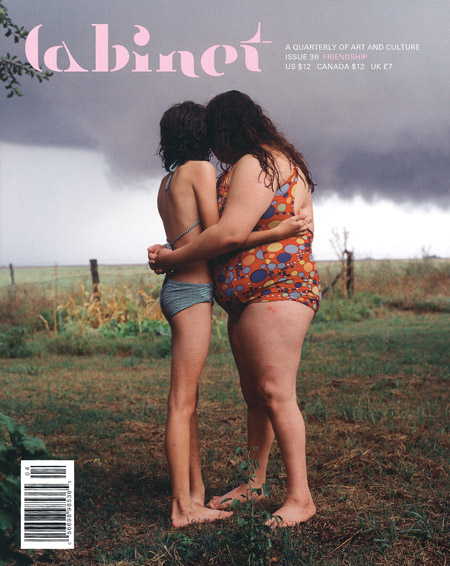Edward T. Hall: Beyond Culture (1976)
Filed under book | Tags: · anthropology, brain, communication, culture, education, japan, language, memory, space, technology, time

“Edward Hall’s fifth book is both a summary of many themes first raised in his volume on proxemics in 1959 and a fresh insight more reminiscent of a psychologist than an anthropologist. The psychological flavor appears epigramatically in a double index to the book. First there is the ‘Index of IDEAS and techniques of TRANSCENDENCE’. Immediately following is an ‘Index of Themes’ in addition to the normal index one finds in most textbooks. The indexes signal a selfconsciousness of the main proposition advanced by Hall, viz., ‘What is called for is a massive cultural literacy movement that is not imposed but springs from within.’ This movement of the collective individual would begin to relieve the two cultural crises in the contemporary world of human experience. One crisis is the population/environment connection and the other, ‘equally lethal’, is man himself.
The analysis offered by Hall covers 15 chapters beginning with the paradoxical nature of culture, where persons and their mechanical/technological extensions are confused. In a populist flourish, Hall labels this tendency the ‘E.T. screen’. An Extension Transference emerges where one intellectually confuses an extension with the process extended. Hall readily admits this issue is not new, being the focus of the Korzybski heritage of General Semantics. Yet, Hall does make the heuristic point that culture per se is now a prime, systematic example of ET.” (from a review by Richard L. Lanigan, American Anthropologist, 1978)
Publisher Anchor Books, 1976
ISBN 0385124740, 9780385124744
320 pages
Review (Marc R. Tool, Journal of Economic Issues, 1977)
PDF (29 MB, no OCR)
See also his monograph The Silent Language, 1959.
Cabinet, 36: Friendship (2010)
Filed under magazine | Tags: · art, culture, friendship, philosophy, psychology, self

“The nature of friendship has been a subject of inquiry from the beginnings of the western philosophical tradition. Socrates considers the question of philia in one of Plato’s earliest dialogues, declaring that his “passion for friends” causes him to value them above even gold. Subsequent thinkers have continued the inquiry, yet friendship remains a phenomenon that “may well be reckoned,” as Emerson wrote, “the masterpiece of nature.”
Issue 36 of Cabinet, with its special section on friendship, features Svetlana Boym on Hannah Arendt’s definition of friendship as freedom from “totalitarianism for two”; Ruben Gallo on Freud’s school friend with whom he communicated mainly in Spanish; and Regine Basha on Sol Lewitt’s exchange of gifts with other artists. Elsewhere in the issue: Paul La Farge on the color black; Kevin McCann on the life and work of schizophrenic author Louis Wolfson, the object of fascination for a generation of French intellectuals; Helen Polson on the fate of lost teeth; Bertell Ollman on his infamous board game Class Struggle; and an artist project by Zoe Bellof.”
Edited by Sina Najafi
Publisher Immaterial Incorporated, New York, Winter 2009/10
HTML
Other issues (articles from sold-out issues are available online)
Wolfgang Ernst: Digital Memory and the Archive (2012)
Filed under book | Tags: · archive, art, communication, computing, culture, data, history, information, internet, knowledge, machine, media, media archeology, media studies, media theory, memory, photography, radio, sound, storage, technology, television, temporality, time

“In the popular imagination, archives are remote, largely obsolete institutions: either antiquated, inevitably dusty libraries or sinister repositories of personal secrets maintained by police states. Yet the archive is now a ubiquitous feature of digital life. Rather than being deleted, e-mails and other computer files are archived. Media software and cloud storage allow for the instantaneous cataloging and preservation of data, from music, photographs, and videos to personal information gathered by social media sites.
In this digital landscape, the archival-oriented media theories of Wolfgang Ernst are particularly relevant. Digital Memory and the Archive, the first English-language collection of the German media theorist’s work, brings together essays that present Ernst’s controversial materialist approach to media theory and history. His insights are central to the emerging field of media archaeology, which uncovers the role of specific technologies and mechanisms, rather than content, in shaping contemporary culture and society.
Ernst’s interrelated ideas on the archive, machine time and microtemporality, and the new regimes of memory offer a new perspective on both current digital culture and the infrastructure of media historical knowledge. For Ernst, different forms of media systems—from library catalogs to sound recordings—have influenced the content and understanding of the archive and other institutions of memory. At the same time, digital archiving has become a contested site that is highly resistant to curation, thus complicating the creation and preservation of cultural memory and history. ”
Edited and with an Introduction by Jussi Parikka
Publisher University of Minnesota Press, 2012
Volume 39 of Electronic Mediations
ISBN 0816677670, 9780816677672
265 pages
Reviews: Liam Cole Young (Reviews in Cultural Theory, 2013), Peter Ward (Information & Culture, 2014).
PDF (updated on 2025-12-9)
For more from Wolfgang Ernst see Monoskop wiki.
Comment (0)
